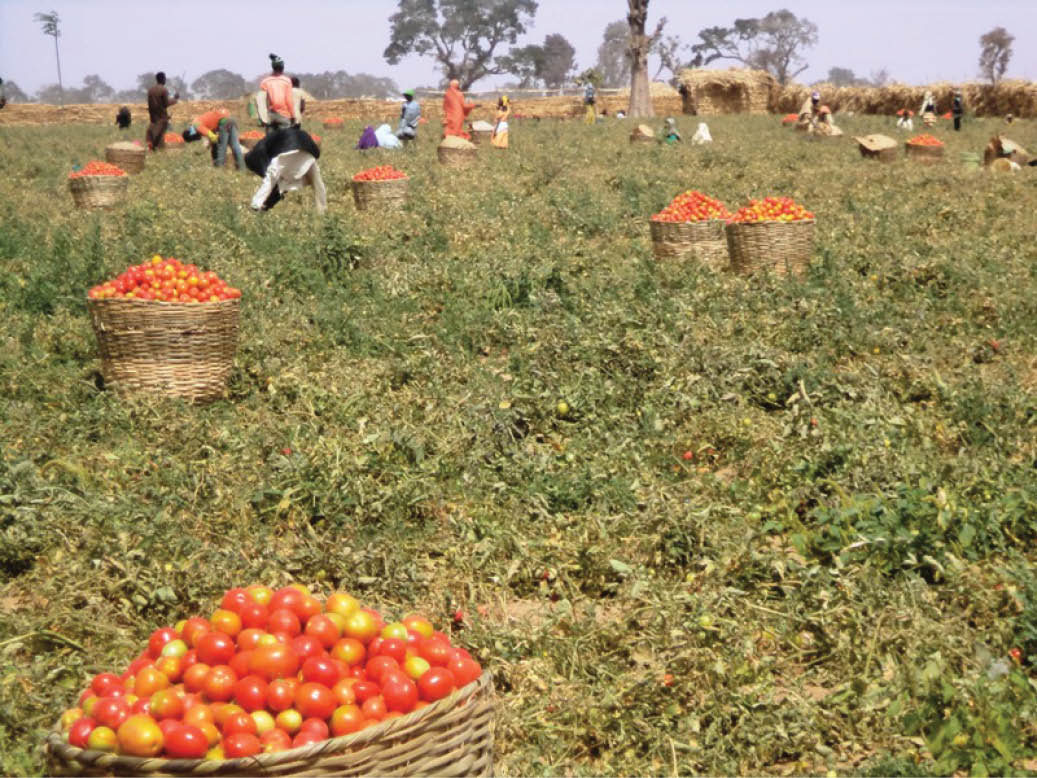Stakeholders in the agriculture sector have urged the federal government to tackle food crisis, saying that the insecurity challenges in the country can be tackled if food security is ensured.
This is contained in the communique of a two-day Stakeholders Consultative Meeting on the 2022 Agriculture Budget organised by AAN, Federal Ministry of Finance, Budget and National Planning; Federal Ministry of Agriculture and Rural Development (FMARD) and the Department of Agriculture and Water Resources of the ECOWAS Commission.
- NWC excluded us from governors’ largesse, says PDP official who resigned
- Why JUSUN should press its demands now
Participants at the event held physically in Lagos State and also virtually, said that without solving food-farm security issues, it would be difficult to solve the national security issues.
“With rising hunger, social insecurity and the peace of the country will continue to be threatened.
“Farms are getting abandoned due to social security threats and natural disasters.
“Making farms safe and funding agricultural mechanisation will create not only more foods but also jobs to engage restless youths that have turned to crime for a living,” they said.
The meeting among others was aimed at facilitating conversations among key stakeholders connecting the continental framework known as the Comprehensive Africa Agriculture Development Programme (CAADP) targets and Government intentions within the Agricultural Sector in Nigeria and also to strengthening citizens’ participation towards making the 2022 Agriculture budget responsive for food security and wealth creation.
The forum also noted that smallholder women farmers have continually been relegated to the back seat in the discussion, planning and implementation of the agricultural budget, despite their role of contributing over 70 per cent of agricultural production.
According to them, the agricultural sector’s budget is still bedevilled by late budget releases and policy inconsistency and that in the light of late budget releases, MDAs need to itemise their priorities and give a proper timeline that synchronizes with farmers and farm season.
“There is inadequate awareness and knowledge on the CAADP/ Malabo performance indicators by stakeholders (MDAs, state ministries, farmer organizations, CSOs, private sector, etc.),” they said.
It also said that with the expiration of the APP 2020, there was a need to begin preparation and outline what the new agricultural policies should be.
“In the drafting of such new agricultural sector policies, consideration should be given to discourage farm practices such as land clearing, and open tillage.
“The policy should promote soil preparation and restoration practices, small size mechanisation, and improvement in data capturing and coordination across sub-national government,” they added.
The forum also stressed the need to have a national investment plan for the agricultural sector and which should be a compilation of the state developed agricultural investment plan that contains state crops with comparative advantages.

 Join Daily Trust WhatsApp Community For Quick Access To News and Happenings Around You.
Join Daily Trust WhatsApp Community For Quick Access To News and Happenings Around You.


